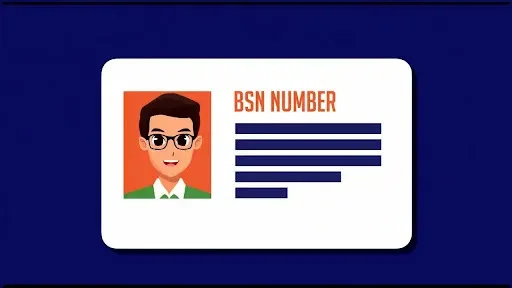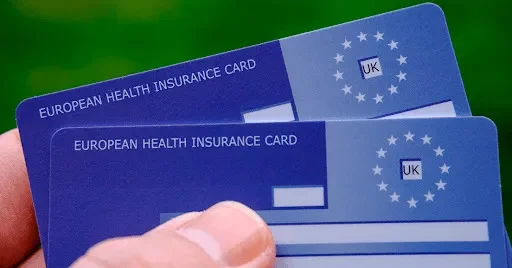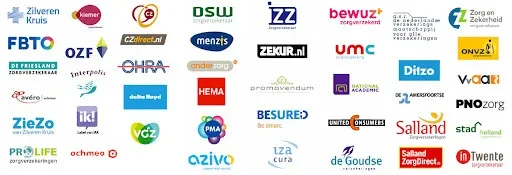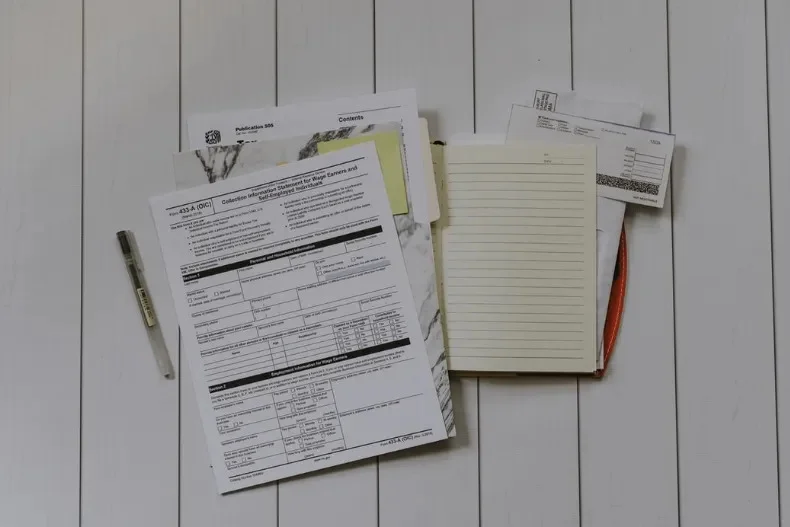If you are planning to relocate to the Netherlands (or any other country for that matter), understanding the quintessential bureaucratic processes is pivotal to get started off on the right foot. While adhering to these processes often seem like chores, they are necessities for legal work and long-term success in your new life.
That said, the BSN or citizen service number is the most important document. What is the citizen service number in the Netherlands and how can you get it? We’re giving you the answers in this article.
What Is BSN?
Your citizen service number of BSN is the document that allows you to work, pay taxes, and get health insurance in the Netherlands. Without it, you simply can’t work legally as a foreigner in the country.
The BSN, or Burgerservicenummer (or even Sofi Number) is something you can apply for after registering in the Dutch Tax Administration or Belastingdienst.

As mentioned, the citizen service number is what every foreign worker needs to work legally in the country. Also, it allows you to pay taxes, get refunds if available, and calculate work-related social security payments. With this number, you can’t open a bank account in all of the banks in the Netherlands, while some will allow you to do so and receive payments. As such, if you are planning to relocate to the country, we recommend getting this number as soon as you can.
Even so, you’ll need this number and it is best to get it as soon as you move.
BSN Characteristics: The Essentials of the Personal Identification Number
The BSN is a lifetime number and for the citizens of the Kingdom of the Netherlands, the number is always indicated on their other documents, such as ID card, driver’s licence, or passport.
Expats who aim to make the Netherlands their home will receive a separate document with the number and following that, they will be given access to other services that every Dutch citizen enjoys.
After attaining it, your BSN will remain unchanged and valid. Even if you choose to leave the Netherlands and return after a few years, the number will remain legitimate. The BSN replaced the social insurance and tax number and you can attain it if you are registered in the BRP (Municipal Personal Recrods Database) or RNI (Non-residents Recrods Database).
How To Get BSN: Registration Process
Via Robin
If you find a job through Robin, you have nothing to worry about because the employment company in the Netherlands will take care of your citizen service number. All you need to bring is any valid identification document (either a passport or your ID card). They will register your residence address and issue the citizen service number.
Since you are from the European Union, you don’t need to receive a residence permit – this is only for people outside the EU and EEA. Sometimes, you may get the citizen service number the same day, but other times, you might wait a few days or a few weeks.
It is possible to start working even if you don’t receive the citizen service number, but a slightly higher tax rate will apply during that period. You can get a tax refund in the following year because that was no mistake on your end, and you will get the extra money back.
Going On Your Own
If you are going to the Netherlands on your own, you will have to apply for the Sofi Number at the nearest Tax Administration Office. You will have to present an identification document and give your residence address. Again, for EU residents, no residence permit is necessary, while all others need to get one.
Taxes and Health Insurance in the Netherlands

The Netherlands has a progressive tax system: the more you earn, the more taxes you pay. Dutch taxes are among the highest in the world. They are only exceeded by the tax rates in Belgium, Denmark, France, Portugal, and Sweden.
Again, if you opt for Robin’s services, you don’t have to worry about submitting anything to the Dutch Tax Administration as the employment agency you sign a contract with will deduct the necessary funds from your salary and pay your taxes for you.
Health insurance is also another important thing you want to take care of. With health insurance, you can gain easier (and inexpensive) access to various health services, and treatments, significantly reducing medical costs.
Bring Your EHIC or PRC

EU or EEA workers can bring their European Health Insurance Card (EHIC) or Provisional Replacement Certificate (PRC) from your country. If you are staying for no more than four months, you will not need to get health insurance.
These cards allow you to access the Dutch healthcare system as Dutch citizens would. The card also covers the required medical care during your stay. The only people who don’t have to obtain Dutch health insurance are those who work for a European institution, as they are covered by the Joint Sickness Insurance Scheme, unless they do something else for the Dutch company.
Public and Private Health Insurance
Before giving you the specifics about the type of health insurance you’d need, we need to explain how Dutch health insurance works. In the Netherlands, private and public healthcare are combined to provide the best coverage possible for everyone in the country.
You will need to get public health insurance, which is standardised by every insurance company. A private health insurance policy offers some extra benefits, and every policy differs from one insurance company to another.
Compulsory Dutch Health Insurance for Foreign Workers
Because you arrive through Robin to work and stay for at least six months (if everything goes as planned), you need compulsory health insurance.
Getting Dutch health insurance shouldn’t be difficult. You need to find a health insurance provider who will sell you the basic package, which is part of public healthcare. Expat health insurance works the same way.
You have your medical care and medical costs covered with the compulsory health insurance, as well as all your healthcare needs.
Your basic health insurance costs around €100 a month, and it covers:
- Appointments with your doctor (huisarts)
- Stays at the hospital
- Surgery and emergency treatment (ziekenhuis)
- Ambulance services and patient transport (ambulancevervoer)
- Prescription medications (medicijnen)
- Blood tests (bloedonderzoek)
- Dental care for children under 18 years (tandarts)
- Limited dental care for adults over 18, restricted to dental surgery, dental x-rays
- Mental health care (geestelijke gezondheidszorg)
- Appointments with medical specialists such as dermatologists, allergists or internal specialists

How to Choose the Best Dutch Health Insurance
Getting health insurance is mandatory and it doesn’t really matter where you get your basic package.
As we’ve already said, you first need to get your citizen service number before you can apply for this medical insurance.
Dutch and International Health Insurance Companies You Can Contact
There are a large number of providers that offer medical insurance and different private health plans. If you want an additional Dutch health insurance policy, you can check out some of these Dutch and international health insurance companies:
- CZ Health Insurance (CZ Zorgverzekering)
- VGZ Health Insurance (VGZ Zorgverzekering)
- Menzis Health Insurance (Menzis Zorgverzekering)
- Achmea Health Insurance (Achmea Zorgverzekering) – This includes several brands under Achmea, such as Zilveren Kruis, Interpolis, and FBTO.
- ONVZ Health Insurance
- De Friesland Health Insurance (De Friesland Zorgverzekeraar)
- Delta Lloyd Health Insurance
- Ohra Health Insurance
- Salland Insurance (Salland Zorgverzekeringen)
Every insurance company on this list is reliable, but we’ll leave the choice to you, as we don’t want to promote any insurance company over another.

Should I Get Additional Insurance For Extra Protection?
You can always get additional coverage if you want. These include physiotherapy, dental, care, and alternative medicine. For instance, hearing aids and maternity care are partly covered with your basic insurance and if you want extra coverage, you can always reach out to your provider.
On that note, you should know that plastic surgery isn’t included in the basic health insurance policy. These are all the extras that aren’t considered essential.
For foreign workers, getting additional medical insurance isn’t necessary, and it could be considered an unnecessary expense. Your basic medical insurance will cover all of your needs and cut down on medical expenses significantly.
How Can I Apply for Dutch Health Insurance?
You can apply for insurance with your BSN. The country is legally bound to accept you for basic coverage, regardless of your pre-existing conditions, health issues, health needs, and your economic status.
Regarding the monthly expenses for your health insurance, in order for it to remain active, you will need to pay a monthly premium. It costs around €100 a month, but the fee depends on your age, income, and the insurance company you select.
It is essential to maintain your health insurance during your stay in the Netherlands. Failing to do so can result in fines, but it will also increase your medical expenses if you end up in the hospital in need of medical care.
Civil Liability Insurance is Specific to the Netherlands
You might not need additional insurance, but civil liability insurance is something we recommend you get.
According to Dutch law, If you cause damage to other people, you must take responsibility and pay for the damages caused. Civil liability insurance is very popular in the country, with around 90% of the population covered.
For example, this coverage can help you pay for the damages you’ve accidentally caused in a car accident, or cause minor damage to furniture in a rented apartment,or even restoring a neighbour’s lawn that has been vandalised by your dog.
Also, liability insurance even takes care of damages caused by professional activities, such as medical suits, so it is recommended for everyone.
BSN in the Netherlands: Finishing Thoughts
After signing your contact, your priority should be getting your BSN. Again, in most cases, the employment agency you’ve partnered with will get one for you, and will also take care of your taxes. However, with your number, you need to get Dutch health insurance.
For health insurance, you can always pick one of the providers from the list above and they will help you pick the insurance policy that will meet your needs.
Hopefully, we’ve answered all of your questions about Dutch health insurance. Feel free to write to us if you have any questions, and one of our recruiters will provide details for you. If you’ve already arrived in the Netherlands, contact your employer to help you with health insurance. Explore jobs in the Netherlands and apply today!

 English
English  Lietuvių
Lietuvių  Latviešu
Latviešu  Polski
Polski  Português
Português  Română
Română  Slovenčina
Slovenčina  Magyar
Magyar  Русский
Русский  Espanol
Espanol  България
България  Čeština
Čeština  Italy
Italy  Croatia
Croatia  Greek
Greek 

